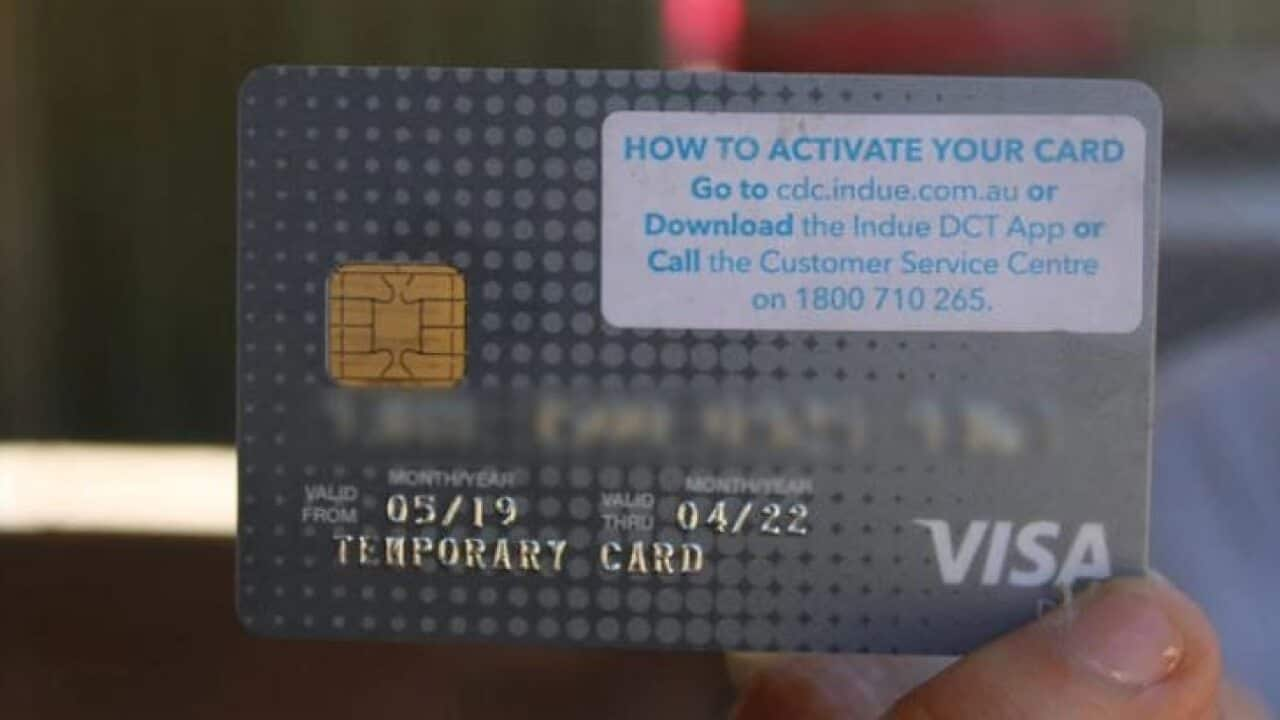Indigenous community groups say they are deeply disappointed the Cashless Debit Card will be extended for another two years despite no evidence it’s working.
Wongi woman Ivy (not her real name) has been using the Cashless Debit Card since trials began in Western Australia’s Kalgoorlie.
Parliament passed the controversial Cashless Debit Card (CDC) laws in the early hours of Wednesday night but last minute amendments mean the trial will be extended for two years instead of permanent and will now be optional for people currently on the Basics Card in the Northern Territory.
The CDC is being trialled in four regions - Ceduna in South Australia, the East Kimberly and Goldfields region in the West and Bundaberg and Hervey Bay in Queensland.
The card quarantines 80 per cent of government payments so they cannot be used to withdraw cash, buy alcohol, or gamble.
Ivy declined to publish her name for privacy reasons.
“I feel ashamed and belittled - I think people treat you a little bit differently, That’s how I feel with the government.”
The 58-year-old woman has lived in Kalgoorlie all her life and knows many people who are on the card.
“I’ve been on the card a few years and it’s shit. There are a lot of problems especially with activation,” she said.
“I’ve had transactions decline or not work when I am just trying to buy food and that - I had to go home with nothing.”
She said the Cashless Debit Card is difficult for people coming from the remote parts of WA who come into town thinking the card will work like an ordinary card.
“I really feel for them mob who come in and they don’t know the cards don’t work or they told them they are already activated and they’re not.
“They don’t really use much money out there in remote areas but then when they come into towns they stuck.”
She admitted to problems with marijuana in the past but said she hasn’t touched it for many years.
“I’ve given that all away. I’ve got my grandchildren to look forward to now but [drugs] are something that lots of people in Kalgoorlie struggle with, but I don’t think this is the answer.”
Ivy said she has not noticed a change in the four years since the CDC trial had been introduced and said some found ways around the restrictions such as battering or crime.
“They find way to get money, they trade it for smokes or things like that for the drug dealers, they steal meat packs and things like that and sell it.” Income management had largely failed, according to John Patterson at the Aboriginal Peak Organisations in the Northern Territory.
Income management had largely failed, according to John Patterson at the Aboriginal Peak Organisations in the Northern Territory.

Aboriginal Peak Organisations Northern Territory's CEO John Paterson said income management had failed in the Northern Territory. Source: NITV News
“Nothing at all. Nothing at all,” Mr Paterson told NITV News.
He said he believed there was a lack of transparency about the effectiveness of the card.
“This is why I think we're not seeing any of the findings or recommendations from the evaluations because they haven't achieved the objectives.”
He said was a lack of meaningful consultation with First Nations peoples to bring about tangible action and said the money could be better spent on wrap around services in community.
"We haven't just been critics,” Mr Paterson said.
"We want people off those cards. Let's invest the money that's being poured into, keeping the upkeep and the implementation of the systems and the strategies.”
He said the funding allotted to income management strategies should be targeting efforts to close the gap in Indigenous disadvantage.
"It was disgraceful for those amendments to be supported... Setting up and keeping the Cashless Debit Card is running into the millions, that could be better redirected to housing, employment, education.
"We continually see these depressing statistics. Work with us and sit with us and let's find real solutions." Central Land Council’s policy manager, Josie Douglas, welcomed the amendments to the legislation but said there were still serious concerns.
Central Land Council’s policy manager, Josie Douglas, welcomed the amendments to the legislation but said there were still serious concerns.

Dr Josie Douglas from the Central Land Council said two income management streams in the Northern Territory could generate confusion. Source: SBS
“The government was forced not to introduce the Cashless Debit Card as a mandatory card to the Northern Territory, and that’s a better outcome that what was originally posed,” she said.
She said there were serious concerns having both the Cashless Debit Card and the Basics Card in use.
“It will mean we have a dual system,” she said.
“That will create confusion and that’s something that Aboriginal people in the Northern Territory simply didn't ask for. They did not ask for the Cashless Debit Card.”
The card was ineffective and there is a lack of clear data, Aboriginal Legal Rights Movement in South Australia, Cheryl Axleby, said.
“It has not made any difference. It’s not working and in actual fact it is causing further harm for people who are placed on the welfare card,” she said.
“The government has not been able to demonstrate how effective this so-called intervention is.”
The Cashless Debit Card trials will now continue until the end of 2022.
Share


